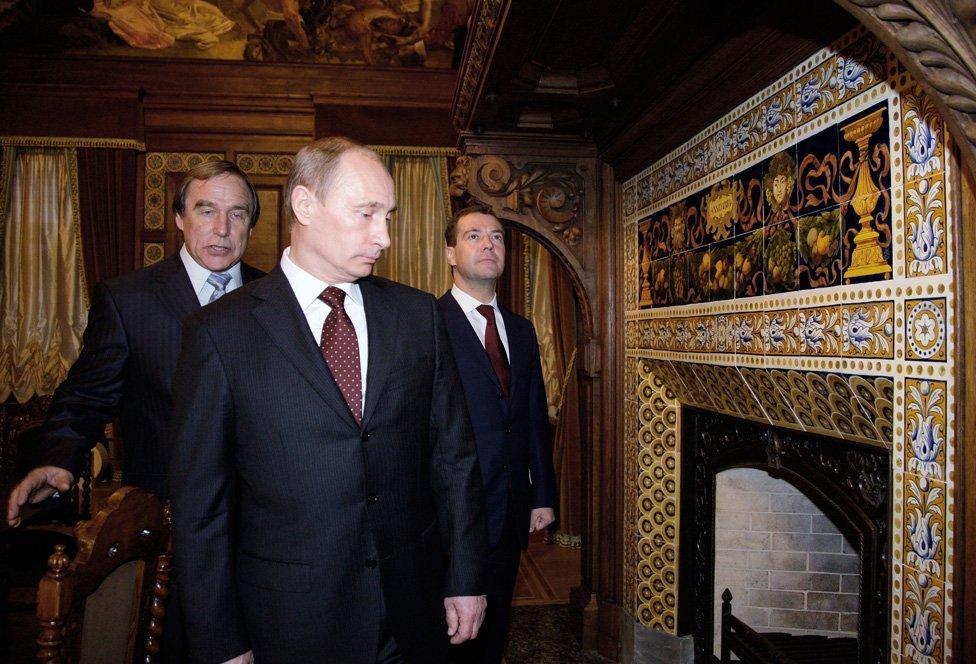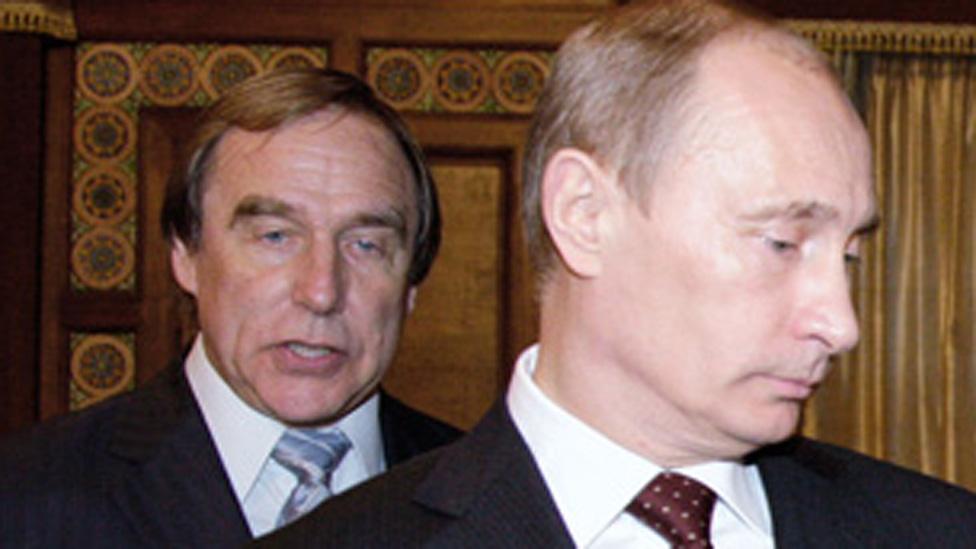Panama Papers: Putin rejects corruption allegations
- Published
"There is no subject to discuss": Vladimir Putin answers a question on the Panama Paper allegations
President Putin has denied "any element of corruption" over the Panama Papers leaks, saying his opponents are trying to destabilise Russia.
Mr Putin was speaking for the first time since the leak of millions of confidential documents from the Panama-based law firm Mossack Fonseca.
The papers revealed a number of offshore companies owned by close associates of Mr Putin.
They suggest the companies may have been used for money laundering.
Putin friend in 'money laundering ring'
Mr Putin, speaking live on TV, said Russia's Western opponents "are worried by the unity and solidarity of the Russian nation... and that is why they are attempting to rock us from within, to make us more obedient".
He said that because they could not find Mr Putin in the Panama papers "they've made an information product".
"They've found a few of my acquaintances and friends... and scraped up something from there and stuck it together."
He referred to Wikileaks tweets, external which accused the US international development agency USAID and an independent journalistic consortium - the Organized Crime and Corruption Reporting Project (OCCRP) - of producing and funding "the #PanamaPapers attack on Putin".
The OCCRP was among a network of 107 organisations - including the BBC - which received the documents from the International Consortium of Investigative Journalists, external.

Cellist Sergei Roldugin (left) is a close friend of Vladimir Putin's
The papers name Mr Putin's long-time friend and godfather to his daughter, the cellist Sergei Roldugin, as the owner of two offshore firms, International Media Overseas and Sonnette Overseas.
According to the papers, the firms were involved in a number of suspicious deals, including one in which International Media Overseas received a loan of $6m (£4.2m) in 2007, which was written off three months later for just $1.
Mr Roldugin has not yet publicly commented on the allegations.
Mr Putin did not go into the details of allegations against Mr Roldugin or other Russian offshore interests, but he praised his friend.
He said he was proud of people like Mr Roldugin, who he said had spent nearly all the money he had earned on musical instruments and donated money to state institutions.

More on the Panama Papers

Several countries are investigating possible financial crimes by the rich and powerful following the Mossack Fonseca leak.
Iceland's prime minister stepped down earlier this week after it was revealed he owned an offshore company with his wife which he did not declare when he entered parliament. He denies any wrongdoing.
The mass leak revealed the extent to which Mossack Fonseca appeared to help some clients evade tax and avoid sanctions, although the firm has denied it has done anything wrong and says the information is being presented out of context.
Panama said on Thursday it was creating an international panel to help improve transparency in its offshore financial industry.

Panama Papers - tax havens of the rich and powerful exposed
Eleven million documents held by the Panama-based law firm Mossack Fonseca have been passed to German newspaper Sueddeutsche Zeitung, which then shared them with the International Consortium of Investigative Journalists, external. BBC Panorama and UK newspaper The Guardian, external are among 107 media organisations in 76 countries which have been analysing the documents. The BBC does not know the identity of the source
They show how the company has helped clients launder money, dodge sanctions and evade tax
Mossack Fonseca says it has operated beyond reproach for 40 years and never been accused or charged with criminal wrongdoing
Tricks of the trade: How assets are hidden and taxes evaded
Panama Papers: Full coverage; follow reaction on Twitter using #PanamaPapers; in the BBC News app, follow the tag "Panama Papers"
Watch Panorama on the BBC iPlayer (UK viewers only)

Update 3 April 2017: This report has been changed to reflect that the Organized Crime and Corruption Reporting Project is an independent organisation and not an agency of the US government.
- Published3 April 2016
